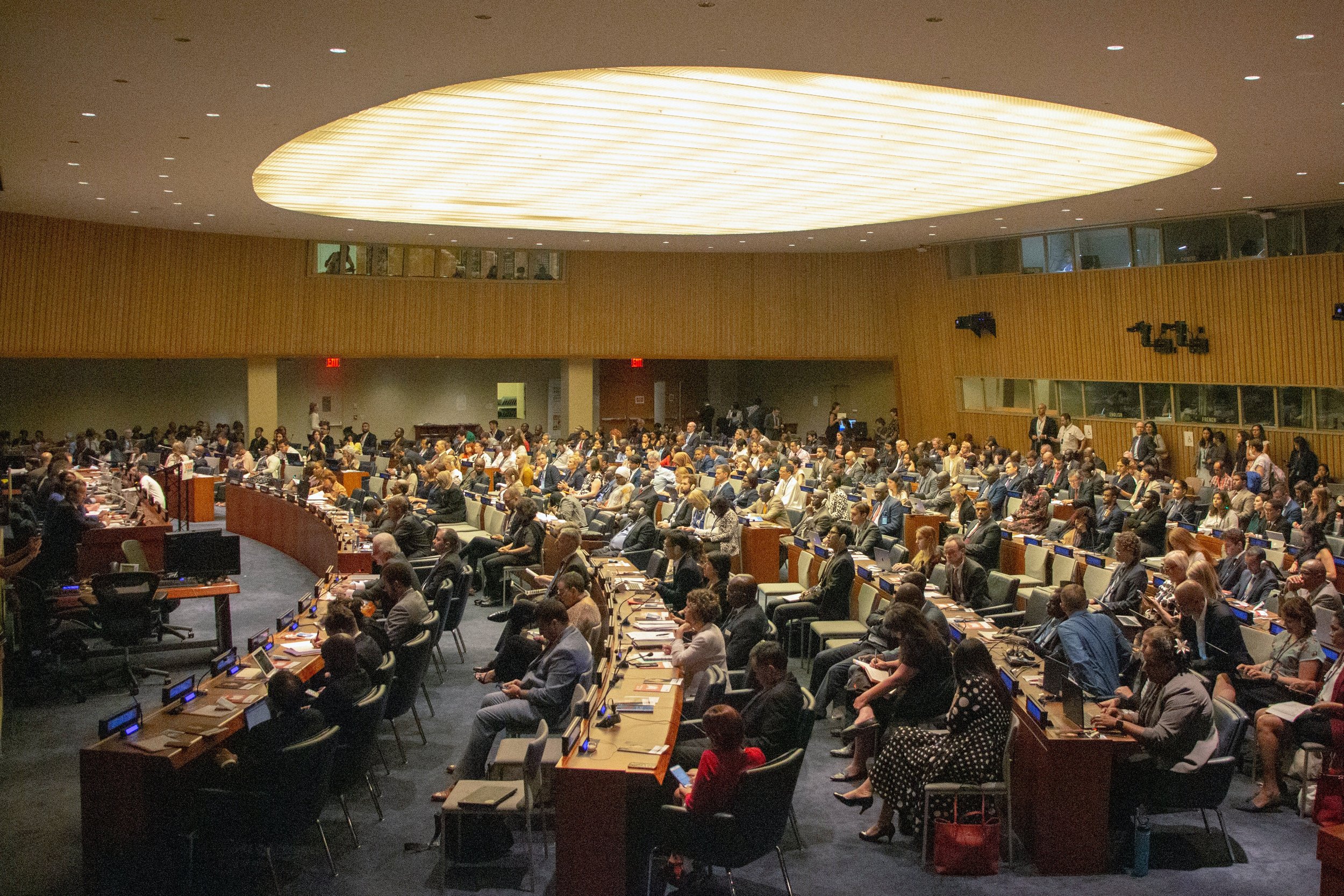
Research & Reports
Raising awareness of human rights issues through research and reports
We are leading international human rights lawyers we are commissioned by companies, non-governmental organisations, civil society groups and individuals to undertake research and produce public or internal reports on all human rights issues.
We work with teams of intelligence experts to investigate specific issues and where appropriate we work with communications experts to show findings in the media.
An effective way to raise the profile of complex social issues, in-depth reports can be influential tools for change. We are experienced in the production and promotion of reports that seek to raise awareness of specific human rights issues. In particular, we have the experience and networks for disseminating reports among those mostly likely to effect change: parliamentarians, business groups and the international human rights community.
IHR-Advisors has an impressive track record of advocating on behalf of clients before international courts and tribunals in some of the most complex and high-stakes human rights cases. This wealth of experience is drawn upon to produce influential reports and to undertake evaluations and monitoring of complex cases.
Environment, Social and Governance Reports
We produce internal ESG reports for companies and businesses by reviewing infrastructures and policies with particular focus on international human rights law compliance.
As experts in human rights we are instructed to generate reports on ESG risks using the United Nations Guiding Principles on Business and Human Rights. As part of both preventative measures and in response to concerns, we are brought in as independent advisors to investigate and find solutions.
War Crimes and Trial Monitoring
We are commissioned to monitor and evaluate trials relating to allegations war crimes and human rights violations. We conduct independent legal reports on behalf of domestic and international courts and tribunals towards strengthening the rule of law. To this end, our independent contributions increase efficiency and improve accountability through tried and tested mechanisms of monitoring and evaluation.
Public Reports by IHR-Advisors
-
This Report sets out the conclusions of a cross-party Fact-Finding Panel of British parliamentarians who have been assembled to consider rights of British women in the United Arab Emirates and whether or not they are adequately protected.
The Report was prepared by Sir Peter Bottomley MP, Baroness Helena Kennedy QC and Debbie Abrahams MP with legal Counsel from Rhys Davies and Ben Keith (IHR Advisors).
The Panel conducted an investigation involving a detailed evidence gathering process, including submissions from human rights organisations, testimony from victims, analysis of legal sources and analysis of press reports and publicly available material.
The Panel held an Open Evidence Session and heard live evidence from three British women, Caitlin McNamara, Asa Hutchinson and Tiina Juahianen, as well as submissions from Counsel, Caoilfhoinn Gallagher QC, on behalf of a fourth complainant. The Panel also heard live submissions from representatives of three leading NGOs.
-
A report by former UK DPP, Sir David Calvert-Smith, assisted by IHR Advisors, questions the UAE’s influence over Interpol including a €50m donation and the UAE Police General inspector reported to be the leading candidate for next Interpol President. The report contends that Interpol’s presidential voting and nominations are completely opaque with no list of candidates made public. The UAE candidate for Presidency of Interpol is accused of human rights violations including presiding over the detention and torture of British citizens. Furthermore, the UAE has a history of abusing Interpol Red Notice system and practising forced rendition of individuals form overseas. The UAE also has an abysmal track record of human rights both at home and abroad and it is concerning that they might have an even stronger influence over Interpol. The report therefore recommends that Interpol publishes the other candidates for the role and does not elect UAE candidate.
-
This Report sets out the conclusions of a Factfinding Panel of British parliamentarians who have been assembled to consider the risks to business people who do business in the UAE and to consider whether or not their basic human rights are adequately protected.
This Reports was prepared by Baroness Helena Kennedy of the Shaws, KC, the Rt Hon Sir Robert Buckland KC MP and the Rt Hon Alistair Carmichael MP with legal counsel from international human rights barristers, Rhys Davies of Temple Garden Chambers and Ben Keith of 5 St Andrew’s Hill, as well as Olivia Chessell, paralegal to the Factfinding Panel.
The Panel was assembled following approach by relatives of individuals who have been unlawfully detained in Dubai. The panel has conducted a detailed investigation into the rights of British business people, and business people more generally, in the UAE. An invite was sent to the Government of the UAE to respond, but no response was received.
This report considers the deficiencies in the criminal justice system in the UAE, with a specific focus on the treatment of business people, with a primary focus on UK nationals, but also considering other individuals.
The Panel has conducted a detailed evidence gathering process including: submissions from human rights organisations, expert evidence from business and academic sources, oral and written testimony from victims and their families, an analysis of legal sources, press reports and publicly available material.
REREAD THE REPORT -
A report published by Rt Hon Sir Robert Buckland KC MP and co-authored with IHR Advisors Rhys Davies and Ben Keith, examines the national security implications of the United Arab Emirates (UAE)'s stake in Vodafone.
The acquisition of a significant stake in Vodafone by the Abu Dhabi-based telecom giant Emirates Telecommunications, also known as e&, has raised substantial national security as well as human rights concerns within the UK. This report considers the issues and implications surrounding the 14.6% ownership that e& holds in Vodafone and sets out concerns regarding the espionage and national security risks. It also considers the broader human rights considerations associated with the UAE's stake in one of the world's leading telecommunications providers, playing a pivotal role in the UK's connectivity and digital infrastructure. The investment by e&, which resulted in the UAE based company becoming the largest shareholder in Vodafone, has not only strategic implications for the telecom sector but also raises significant concerns regarding privacy, data protection, and freedom of expression.
In January of this year, UK Ministers found that the UAE’s stake in Vodafone was a threat to national security and ordered that the company establish a special committee to oversee work that has a bearing on British security. Sir Robert’s analysis follows the disastrous UAE-backed attempt to buy The Telegraph Group. Questions are now being asked about attempts by the UAE to buy UK institutions and critical infrastructure.
With clear evidence of the UAE’s sophisticated intelligence gathering apparatus and its history of spying, there are serious concerns about Emirati ownership of Vodafone and other businesses. Where foreign ownership comes from states which have a history of repressive activity and espionage, real caution and scrutiny is required. The report sets out the risks and concerns surrounding the UAE’s ownership of Vodafone and calls for vigilance.
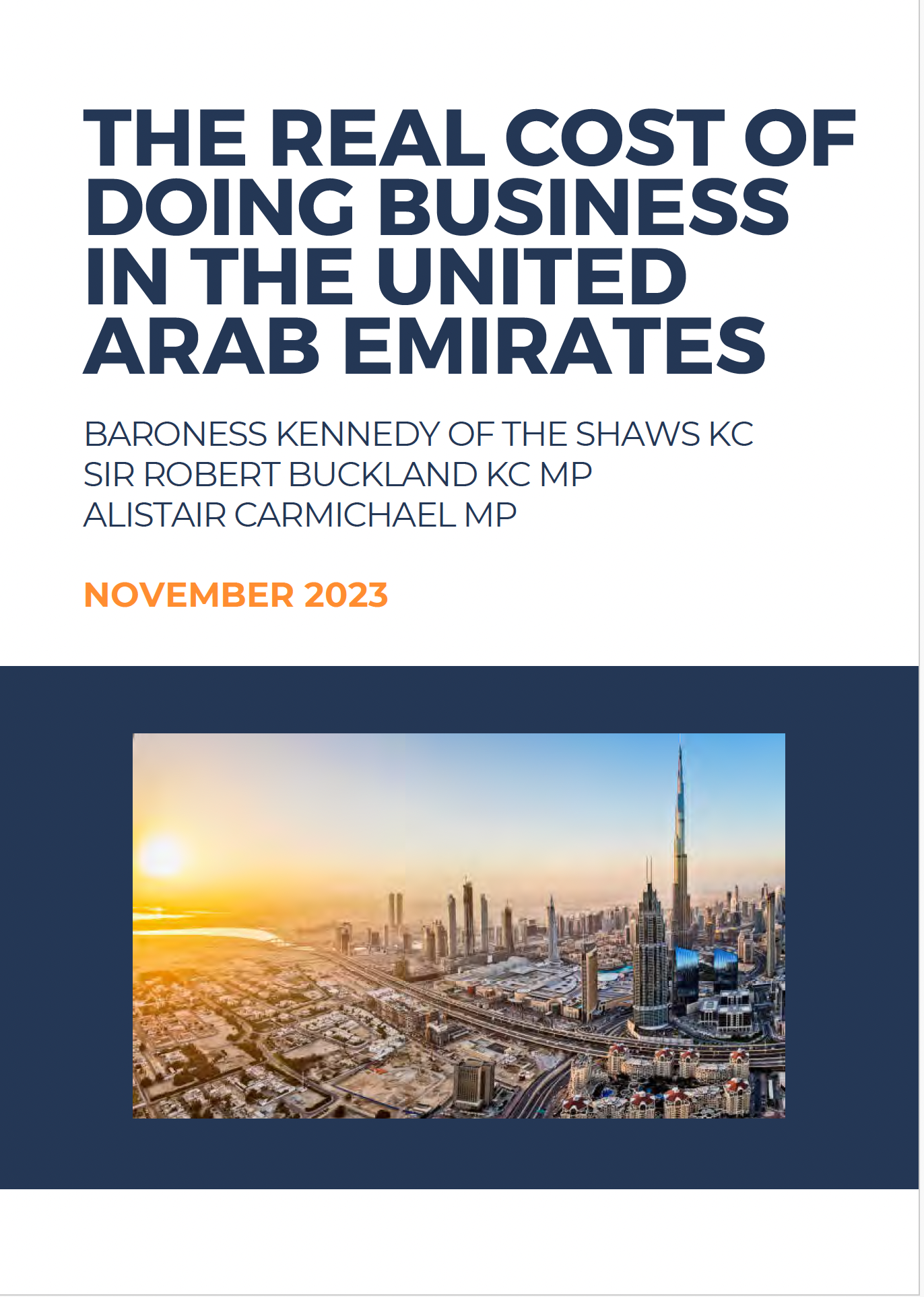
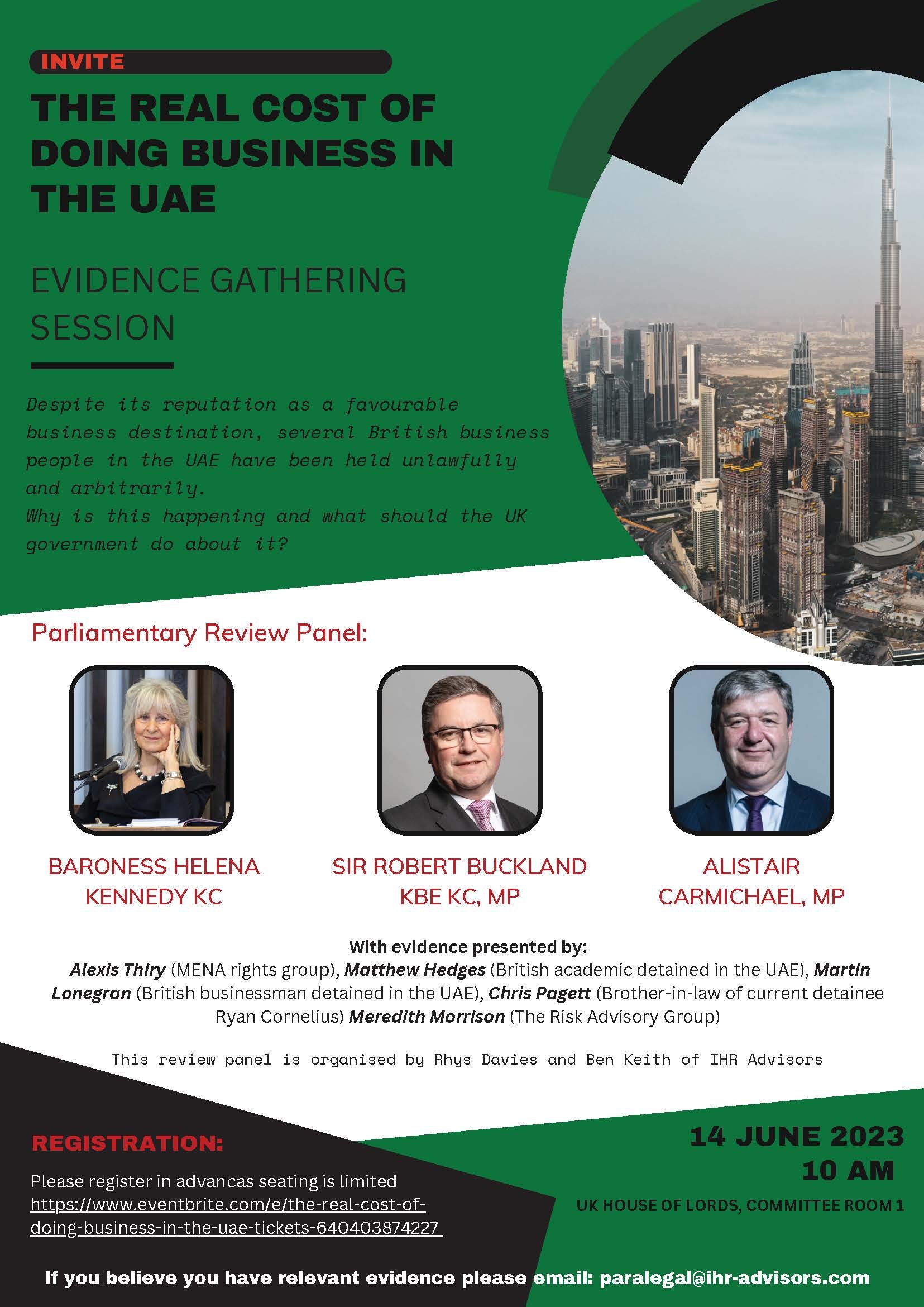
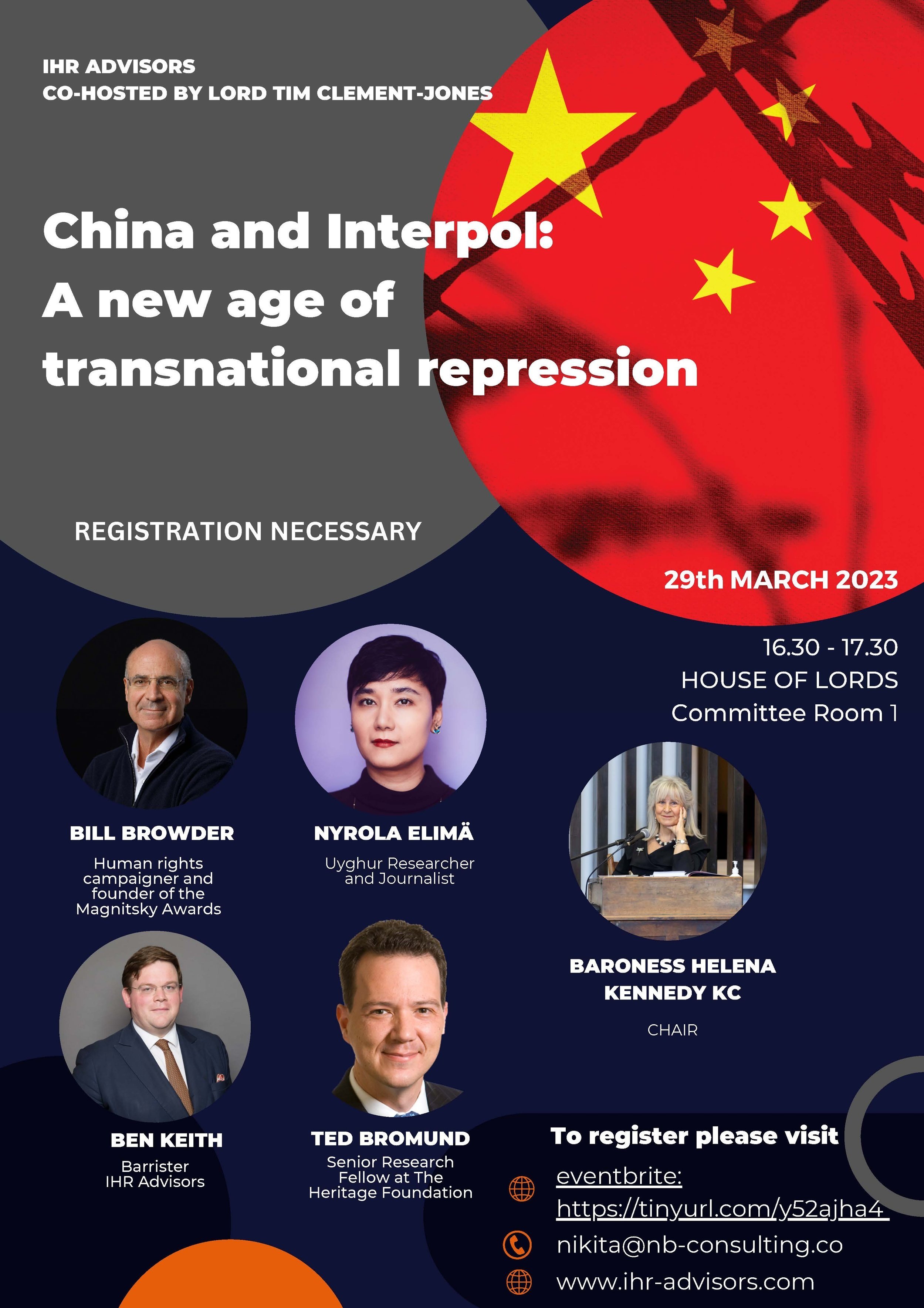
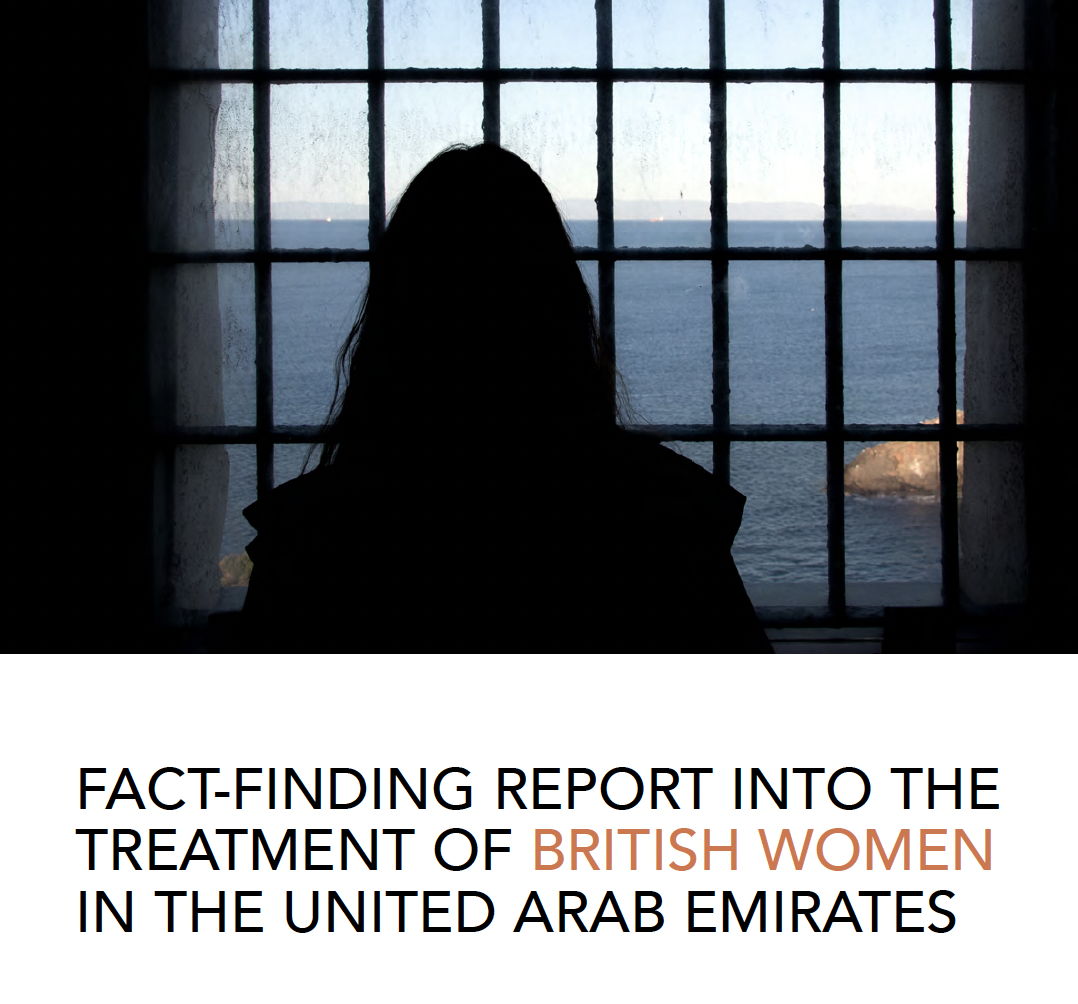



Ben Keith contributes to London Advocacy on 20 September 2022